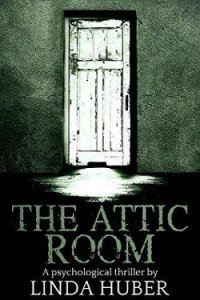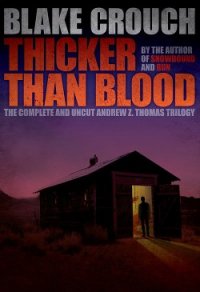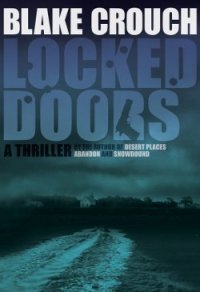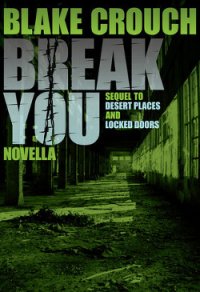Dead in the Water - Tickler Peter (книги онлайн без регистрации TXT) 📗
She shrugged. “Probably not. I live on my own in Wood Farm. Still I expect you’ve already found that out. You wouldn’t be much good at your job if you hadn’t.”
Dorkin said nothing. He was watching her with half-closed eyes, waiting for her to slip up. “You’ve probably checked my car over too. In which case you’ll not have found any evidence that I ran Janice Atkinson down. If you check the CCTV, you’ll find I didn’t drive along the Iffley Road that evening. And if you check your brains, you’ll realise that I had no reason to even wish her dead.”
Fargo stirred, scraping the floor with his chair as he did so. Unlike Dorkin, he had run out of patience. “Not if you’re lying about your feelings. Not if you were so obsessed with Paul Atkinson that you’d do anything to free him from his wife.”
Outside in the corridor there was an argument going on, loud enough to distract all three of them. As if by some tacit agreement, they waited for the bitter words to cease and for angry steps to mark the departure of both participants.
Then Dorkin resumed. “Who was this ’friend’ you had supper with on Tuesday night? And where did you eat?”
“In the Fox pub on Boars Hill. It’s not bad. Have you ever tried it?”
She watched with pleasure as the penny dropped with a clang inside Dorkin’s head. She looked at Fargo. He didn’t seem to have got it.
“And the friend I ate with was Doug Mullen. I think you know him, don’t you? Anyway I am sure he will vouch for me.”
* * *
An hour or so later, after some more work in the garden followed by a cheese sandwich, Mullen locked up the house and headed into Oxford. He parked in what was fast becoming his usual place in Lincoln Road, before walking briskly towards town, this time avoiding the main road — up Wytham Street, past the outdoor swimming pool and along Marlborough Road. Then he turned left, walking along the river until he reached the encampment. His hope was that the two men he had talked to just before he was clubbed into unconsciousness would be there. It was a long shot, he knew, and his fears were fulfilled. There was no sign of them at all. Only a guy with long lank hair who had clearly been smoking dope and was very likely going to be no use at all.
Even so, Mullen offered him a cigarette and lit it for him. “I’m Doug,” he said, trying to get a conversation going.
“Fets,” came the reply in thick Glaswegian.
“Fitz,” Mullen replied, checking.
The man nodded and took a drag.
Mullen explained that he was trying to find two men: a tall skinny one with a scar down the side of his face and a shorter fatter man with tartan trousers and a Midland accent. The mention of the tartan trousers seemed to mean something to Fitz. He held out his right hand and stroked the palm with the index finger of his other hand. Money! Mullen swore to himself. He had had enough of handing out money and cigarettes to all and sundry and getting very little reward. But the man scratched at his palm all the more. “Gone.” he insisted. “Liverpool.”
Suddenly Mullen realised what he was saying. He wasn’t asking for money. He was saying the two guys — or the tartan-trousered one at least — had come into some money and gone. It wasn’t good news. Liverpool wasn’t exactly local. Had they been paid to move on by whoever had knocked him unconscious and stripped Chris’s tent of all its possessions? It seemed more than possible. Mullen pulled out his last packet of cigarettes. There were only seven left in it, but the guy had earned it. He handed it over. He also handed over one of his own business cards. It was the longest of long shots, but you never knew. “Ring me if either of them ever comes back and it’ll be worth twenty quid. All right?”
The man nodded. Mullen turned away and then suddenly back again. It was stupid not to ask. “Did you know Chris?” Fitz stared at him uncomprehending. Mullen continued. “He drowned in the river down near Sandford. He had long fair hair, was tall and wore a camouflage jacket and trousers. He had a tent here.” Mullen waved his arms around in the hope that this might somehow prompt the man. But he merely stared back at Mullen, face and eyes blank, and muttered ‘Liverpool’ again. If he had known Chris, it might as well have been in another universe.
* * *
Despite walking with deliberate slowness along the river, Mullen arrived at the vicarage a quarter of an hour before the agreed time. He hated being late, but even he recognised that this was ridiculously early. If he wanted to get off on the wrong foot with the Reverend Downey, then knocking on her door fifteen minutes before she was expecting him would almost certainly achieve it. He paused, wondering whether to do a circuit of the area or go and buy another bar of chocolate from the woman who had been so helpful in the shop down the Abingdon Road. Not for the first time in his life, chocolate won.
Or chocolate would have won if something very unexpected had not occurred. Mullen had just checked his wallet for money when the front door of the vicarage opened. His first instinct was to raise his hand and call out — after all he knew the man well enough to do so. But there was something about the way Kevin Branston emerged from the house — not exactly furtive, but not exactly unfurtive either — which caused Mullen to hold back. If Branston had turned west, then they would inevitably have seen each other. But he didn’t. And as Mullen watched him hurry off in the direction of the Abingdon Road as fast as his weight would permit, it was with a bewildered sense of excitement that maybe he had been witness to something he really hadn’t been intended to see. Had Branston been getting out of the vicarage in plenty of time to avoid bumping into him? Surely, Mullen debated with himself, he wasn’t being paranoid to think that?
* * *
As Mullen gave up on the chocolate and retreated back along the river, he wrestled with his thoughts. Kevin Branston knew Diana Downey. He hadn’t known that. But was that so much of a surprise? Both of their jobs included dealing with the marginalised of Oxford. Chris had attended both St Mark’s and the Meeting Place. Was that just because they were places where he could get a welcome and free food? Or had Chris had connections with Branston and Downey that went back further? These were the thoughts that ricocheted wildly around his head right up to the moment when at 2.31 p.m. he finally knocked on the vicarage door.
Diana Downey welcomed him with a smile. Nothing surprising in that. It was part of her professional persona, and yet Mullen couldn’t help feeling that she seemed a bit on edge.
“It’s kind of you to see me at such short notice,” he said, trying to lay his own distracted thoughts aside.
“Not at all. Would you like a cup of tea? Or coffee?”
“I’d like to talk about Chris.” Mullen knew as soon as the words came out of his mouth that they wouldn’t win a good manners competition, but he didn’t much care.
“Okay.”
They went into what was clearly her study — desk, laptop computer, multi-function printer, bookshelves, a wooden cross on the wall, a slightly bedraggled orchid on the window sill and at the far end of the long room a low round table with two armchairs either side. She waved him to one of them while she sat in the swivel chair by the desk.
“So what do you want to know?” She was sitting upright, facing him, hands clasped over her lap, looking directly into his face. Her chair gave her a distinct height advantage and her whole demeanour spelt out an underlying message: this is a business meeting — nothing more and nothing less.
Mullen plunged straight in. “Did you ever smell alcohol on Chris’s breath?”
“No.” There wasn’t even a hint of hesitation.
“You never saw him drinking alcohol?”
“No.”
“Not even at Communion?”
This time there was, Mullen reckoned, a fractional hesitation before Diana Downey replied. “He never took communion.”




